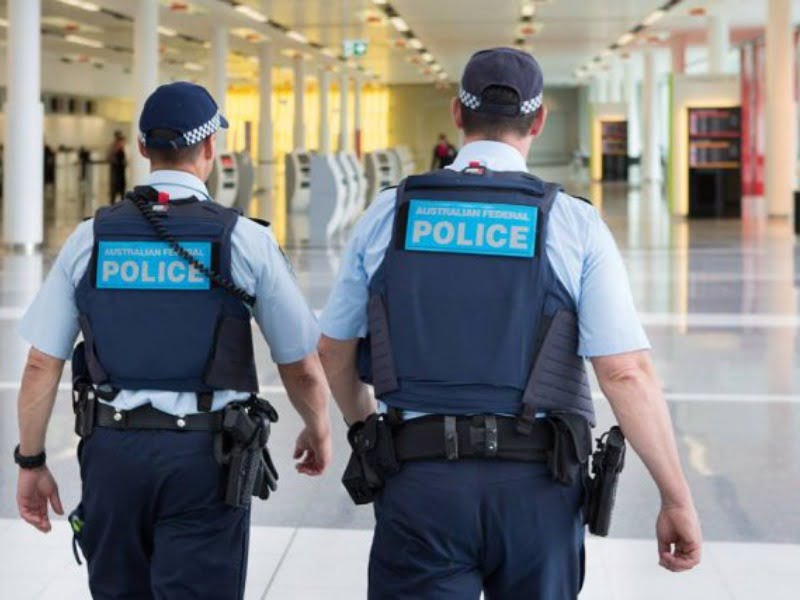There was a strange moment that occurred in my time as a Federal Cop working in the Crime Operations Team. We had just seized over 100 kilograms of methamphetamines and successfully ran an operation to arrest those responsible for importing the drug into Australia.
Then, to congratulate me for my contribution in what had been a week-long effort, my superintendent handed me a beer.
“How strange”, I thought to myself, “We have just arrested multiple people for possessing one drug, leading to possible decades long prison sentences, and we celebrate by consuming another drug”.
Of course, there are a lot of reasons why one would consider consuming a beer as a significantly less dangerous endeavour to consuming amphetamines, they are very different drugs.
But it raises the question as to why such a rigid line exists within our society between drugs which are not just tolerated, but to some degree culturally celebrated, while merely possessing others will earn you a custodial prison sentence.

There has been a mountain of literature written about the historical racial motivations behind where the line of prohibition was drawn, and it is certainly no coincidence that the drugs that are legal in Australia today are the same drugs that white Americans traditionally made money making, while the drugs that are illegal tend to have originated in South America and Asia.
But the pertinent question may not be where that line is drawn, but why that line is drawn at all.
Consuming drugs is, in general, an inherently unhealthy act for anyone to engage in. However, the criminal justice system was never intended to be used to coerce citizens to be healthy.
The very notion of ‘justice’ implies that this system is intended to right wrongs, to punish offenders for what they have imposed upon victims. But if the offender in this instance is also the victim, do drug prohibition laws therefore only punish the already suffering victim?
The State has an interest in keeping as many of its citizens unintoxicated as possible, but not only is criminalisation not the most appropriate mechanism to achieve this, it is not the most effective.
As was discovered during the United States’ period of alcohol prohibition in the 1920’s, whether or not the State permits you to consume a drug generally has very little bearing on whether one decides to or not.
I spent my career arresting drug importers who faced over twenty years in prison if they were caught, but with each import consignment worth in the hundreds of millions of dollars, there will always be someone willing to roll the dice and bring drugs into this country, and there will always be plenty of Australians willing to pay some of the highest drug prices in the world. There’s a reason Australia was always known in the international drug trade as the ‘golden island’.
The fact that methamphetamine and heroin is strictly prohibited matters very little to an addict. It changes how they buy the drug, and dramatically inflates the price they pay for that drug, but it does not impede their insatiable desire to get their hands on it.
What it does do is immediately place the addict into the realm of criminality by the mere act of possessing their drug of choice.
At this point, the leaps towards criminal acts in order to fund their addiction is an infinitely smaller one. By making addicts criminals by default, we condemn them to the criminal world.
The obvious path forward is to treat addiction as a health condition, one that can be cured by a team of medical experts, psychologists, and public welfare experts, not Police.
Not only would this be immediately cheaper than incarcerating drug users, but it could be easily funded by the regulation of the drug industry.
The Australian Criminal Intelligence Commission estimated that last year Australians spent $10.3 billion on illegal drugs. Not only would the regulation of this industry bring in billions in new tax revenue, but we would also save billions by no longer needing to police the illegal trade.
If drugs were legalised in Australia tomorrow, almost every organised crime group in the country would immediately lose its primary source of income.
Regulating the drug trade means the entire business model for so much of Australia’s underworld collapses.
The bikies turf wars, fighting over lucrative drug distribution territories, would inevitably dissipate.
Additionally, just imagine how much more efficiently our judicial system could operate if it wasn’t saturated with recreational drug users and small-time dealers being handed criminal charges that taint them for life.
Just imagine how much more time our law enforcement bodies could commit to the pursuit of serious fraudsters and violent offenders if they weren’t being tasked to lead sniffer dogs through train stations and music festivals.
The economic case is irrefutable, but on top of this, there is absolutely zero evidence that legalising drugs would increase usage at all.
A number of studies around marijuana use in US States which have legalised the drug have shown mixed results with many studies indicating usage has actually reduced, while Portugal has recorded a dramatic reduction in drug related deaths in the twenty years since its radical broad drug decriminalisation policy was introduced.
But perhaps the best way to understand the implications of legalisation is to pose yourself the simple question; is the fact ‘heroin’ and ‘ice’ are illegal the only reasons you don’t consume it?
If you could get either drug at your local pharmacy, would you suddenly feel persuaded to pick up the habit?
The reality is any one of us could obtain illegal drugs today if we wanted to; but most of us choose not to. There is no reason to think that will change with legalisation. What would change is the way we as a society react to and help the fraction of drug users that become addicted to a drug.
Whether it’s alcohol, prescription drugs, or methamphetamines, we as a society should have the humanity to recognise the myriad of contributing social, physiological, and psychological factors that lead otherwise good people down this path and help them… not imprison them.
It is frustrating because it feels inevitable that our society will, eventually, evolve to such a point where we will reflect back on drug prohibition with the same bemusement, we now do the historic failures of alcohol prohibition. But until that day comes, how many trillions will we spend fighting an unwinnable war?
How many futures will be ruined with needless drug possession charges? and how many lives will be lost to an unregulated industry funding criminal group and exploiting the addicts we should be helping.
The war on drugs has cost us too much and is unwinnable, but in the poetic words of John Lennon… ‘war is over, if you want it’.
Carrick Ryan is the nom de plume for a former counter-terrorism officer at the Australian Federal Police and current fraud investigator at a Big Four bank. You can follow Carrick on Facebook here and on Twitter here.
Do you know more? Contact James Riley via Email.

